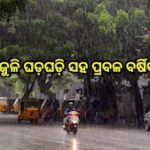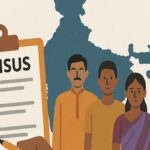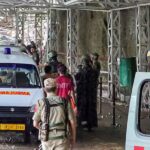While the state is in an uproar over the list of tainted teachers, allegations have emerged against the state government regarding fraudulent admission into medical courses using fake tribal certificates.
A significant development is that after these serious allegations came to light, the responsibility to investigate whether the tribal certificates are genuine or fake has been given to the Health Department. However, the duty to investigate such corruption allegations lies with the state’s Backward Classes Welfare Department. They have now handed over the investigation to the Health Department and are asking for an ‘action taken report’! A top state administration official stated, ‘It’s not just tribal certificates; similarly, fake certificates for Scheduled Castes are also widespread. If a proper investigation is conducted, culprits from the ruling party’s own ranks will be exposed, just like with the teachers. Certificates have been sold for money. Genuine tribal students are being deprived here, just like genuine teachers.’ Losing faith in the government’s investigation, three deprived tribal students have filed a case in the Kolkata High Court. One of them, Avijit Soren, said, ‘We could not get admission into MBBS seats reserved for tribals. Because others have taken over the seats reserved for us. We were forced to take the legal route.’
The state’s Backward Classes Welfare Department has sent a list naming 45 medical students to the Director of Health Education under the Health Department. A joint secretary-level official from the Backward Classes Welfare Department informed via letter to the Director of Health Education, ‘A tribal organization in the state has alleged that admissions were secured using fake ST certificates in the 2025 NEET (National Eligibility cum Entrance Test) exam. In this situation, the entire matter needs to be investigated.’ Simultaneously, the Health Department has been asked to report what actions it is taking to the Backward Classes Welfare Department.
After receiving this letter, the list of accused students has been sent to all state medical college authorities. An email sent from Swasthya Bhawan to the medical colleges has requested them to verify and send confirmation regarding the authenticity of the tribal certificates submitted by the listed students. Sources from Swasthya Bhawan report that the list includes six students from Calcutta Medical College, six from NRS Medical College, four from National Medical College, and one from Sagar Dutta Medical College. A medical college source stated, ‘The six students whose list was sent to us—their tribal certificates were verified by officials from the Backward Classes Welfare Department during counseling. Therefore, we are sending what Swasthya Bhawan has requested.’
A top official from the state’s Tribal Welfare Department stated, ‘How will Swasthya Bhawan investigate whether a tribal certificate is genuine or fake? They do not have the jurisdiction for such an investigation. Instead, the Backward Classes Welfare Department itself can investigate the authenticity of the certificates. For that, it would be correct to send the certificates to the Backward Classes Welfare Department of the respective districts from which they originated. Essentially, the SDO office of the concerned district can determine whether the certificates are fake or genuine.’ Questions are being raised as to why the state government assigned the investigation to the Health Department instead.
In reality, complaints about fake certificates started emerging in this state particularly after the distribution of SC and ST certificates began from government camps at doorsteps. But at that time, the Chief Minister did not pay any heed to these allegations. She was busy reporting how thousands upon thousands of certificates had been distributed from government camps. From 2012 until now, the number of SC and ST certificates distributed in the state has exceeded nearly 1.5 crore. A top official from the state’s Backward Classes Welfare Department revealed, ‘Previously, one had to apply with documents at the SDO office for an SC or ST certificate. Based on that application, a notice would be sent to the applicant. Simultaneously, the department would conduct field investigations in the area. The certificate was only issued after verifying all the applicant’s information and cross-checking data from the field.’ However, officials themselves admit that this vigilance has disappeared over the last decade. They say, ‘If someone applies at a government camp at their doorstep, which government employee will take the risk of verifying information? Or will tell the applicant that without certain documents, the application for an ST certificate cannot be accepted? So, certificates were given to whoever applied. The inevitable effect is that genuine tribal children are now being deprived.’
Recently, at a meeting of the state’s Tribal Welfare Council at Nabanna, the state’s Forest Minister, Birbaha Hansda, raised the issue of fraudulent admission into medical courses using fake tribal certificates. Last Monday, at a meeting of the state’s Tribal Advisory Board in the presence of Mamata





